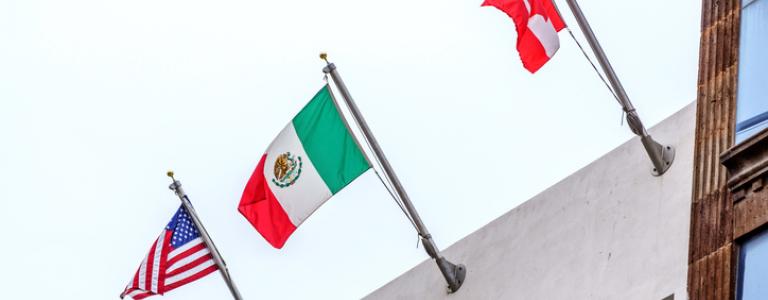A wish list for an environmentally friendly NAFTA
The renegotiation of the North American Free Trade Agreement (NAFTA) has been progressing along a very rocky path, with the U.S., Canada and Mexico all threatening at one point or another to exit the pact. But slow progress is being made toward a new agreement.
The renegotiation of the North American Free Trade Agreement (NAFTA) has been progressing along a very rocky path, with the U.S., Canada and Mexico all threatening at one point or another to exit the pact. But slow progress is being made toward a new agreement.
However, experts warn that the resulting trade treaty is unlikely to benefit the environment and the general public, unless major changes are made. These proposed NAFTA alterations, as outlined in this story, could also provide a template for future enviro-friendly international trade agreements.
Among the changes needed: remove NAFTA Chapter 11 or reform the ISDS, remove any reference to water as a common commodity, remove the energy proportionality rule, include the Paris Climate Agreement and Sustainable Development Goals, and protect supply management and sustainable agriculture.
Also, axe regulatory cooperation and harmonization, fully fund the Commission for Environmental Cooperation (CEC) and give it some teeth, Acknowledge indigenous and native rights (not free trade incentives), and most importantly: make a place at the bargaining table for the people and the planet.
Continue reading full article from Mongabay.com.
Article from Mongabay.com is under Creative Commons BY-NC-ND
You might also be interested in
Why Trade Matters in the Plastic–Pollution Treaty Negotiations
The global push to end plastic pollution by 2040 highlights the critical intersection of trade and environmental action, with upcoming INC-5 negotiations focusing on reducing plastic production, consumption, and waste within a fair and effective international framework.
What to Expect at Plastics INC-5
Q and A with Tallash Kantai of Earth Negotiations Bulletin on INC-5.
The WTO and Fisheries Subsidies: Where are we, exactly?
What are the latest developments in WTO fisheries subsidies negotiations, focusing on marine conservation, community impact, and sustainable fishing practices? Tristan Irschlinger offers a comprehensive overview explaining key aspects of the agreement, ongoing discussions, and what’s at stake for global fishery sustainability.
Digital Trade and Global Data Governance
Neha Mishra explores the current landscape of international trade law and considers how to strike a balance between achieving trade goals and the imperative of privacy protection, fairness, and competition.
